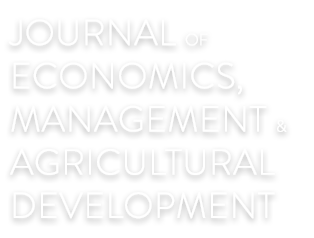Authors
ABSTRACT
The paper examined the effects of COVID-19 pandemic on the Philippines’ MSMEs across the food value chain and the strategies that food-based MSMEs employed to cope with disruptions. A food value chain framework was used to
analyze the food-based MSMEs, focusing on the input and service provision, production/farming, processing, transport and storage, retailing, and consumption. Results revealed the following: (1) different quarantine protocols across provincial and local boundaries contributed to the complexity of transporting inputs and products; (2) limited mobility of manpower contributed to the challenges of continuing business operations; (3) there was an observed increase in new financing programs and training efforts both from government and private institutions to support MSMEs; and (4) limited mobility spurred the demand for e-commerce and the use of digital technology to address supply chain constraints. Strategies that could improve system-wide adaptiveness and viability during disruptions across the food
value chain were also recommended.

